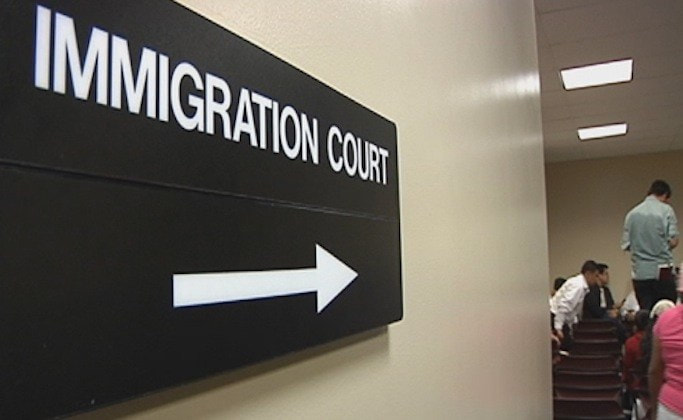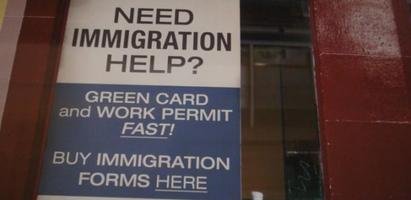A federal government shutdown will impact some, but not all, US immigration and visa programs. The principal distinction is between those programs that are fee-funded and those that rely on congressional appropriations for funding. The greatest business immigration impact will be on US Department of Labor (DOL) programs for permanent (PERM) labor certification and H-1B, E-3, H-1B1, and H-2B matters.
With the growing possibility of a federal government shutdown at the start of its new fiscal year on October 1, 2023, it may be instructive to review how immigration-related agencies operated during prior shutdowns. Any shutdown in FY2023 will also be informed by Department of Homeland Security (DHS) guidance published in 2022 that describes what DHS operations will continue during a federal funding hiatus or lapse in appropriations.
GENERAL SHUTDOWN INFORMATION
If the government agencies close for budgetary reasons, all but “essential” personnel are furloughed and are not allowed to work. Operations that are funded by user fees may face limited operations, but are unlikely to halt completely. Functions that rely on congressional appropriations for their operating funds are likely to shut down all but essential functions.
US CITIZENSHIP AND IMMIGRATION SERVICES
US Citizenship and Immigration Services (USCIS) is funded by fees paid by stakeholders, and as such this agency typically continues operating because it is not dependent on congressional appropriations to fund its operations. Exceptions to this include the few USCIS programs that do receive appropriated funds: E-Verify, the EB-5 Immigrant Investor Regional Center Program, Conrad 30 J-1 doctors, and non-minister religious workers. These operations will likely be suspended.
E-Verify and I-9
E-Verify will likely go dark during a shutdown. While employers must continue to honor their obligations under Form I-9 rules, they will not be sanctioned for delays arising from the inability to process E-Verify cases in accordance with the “three-day rule.” When E-Verify comes back online, employers should create E-Verify cases based on Forms I-9 completed during the shutdown.
For employees who received a tentative non-confirmation (TNC), the period during which employees may resolve TNCs will be extended. The number of days E-Verify is unavailable will not count toward the days that employees have to begin the process of resolving their TNCs.
USCIS has confirmed that employers may continue to use the new alternate document review process for remote Form I-9 document verification if E-Verify is temporarily unavailable due to a government shutdown.
EB-5
Although the EB-5 Immigrant Investor Regional Center Program receives government funding, its current operations are funded and authorized through September 30, 2027.
STATE DEPARTMENT
Visa and passport operations are fee-funded and are not expected to be impacted by a lapse in funding; however, consular availability and processing may nonetheless be impacted depending on the post and ancillary impacts of the shutdown on consular operations. If a consulate is impacted by the shutdown, then it is likely that services will be limited to diplomatic visas and extreme emergencies.
US DEPARTMENT OF LABOR
The processing of labor condition applications for H-1B, E-3, and H-1B1 petitions will be shut down. Similarly, processing of prevailing wage, PERM labor certification, and other operations of the DOL Office of Foreign Labor Certification (OFLC) will cease. DOL/OFLC personnel will not be available to respond to inquiries, and web-based systems for filing, status checks, and uploading documents, among other features, will be offline. Deadlines related to DOL applications and procedures are typically modified.
US CUSTOMS & BORDER PROTECTION
DHS deems passenger and cargo inspection and law enforcement to be essential operations that will continue despite a lapse in appropriations. Ports of entry will be open, and processing of passengers arriving at land, sea, and air ports of entry will continue; however, processing of applications for work visa classification (e.g., TN, H-1B, L-1), particularly at Canadian border posts, may be impacted. Applicants are advised to contact the port of entry in advance to confirm the post’s operational status.
IMMIGRATION AND CUSTOMS ENFORCEMENT
Immigration and Customs Enforcement (ICE) enforcement and removal operations will continue, and ICE attorneys will typically focus on the detained docket during a shutdown. The ICE Student and Exchange Visitor Program (SEVP) offices (for, e.g., F-1, J-1, M-1 visas) are unaffected since SEVP is funded by fees (AILA Doc. No. 21092710).
EXECUTIVE OFFICE FOR IMMIGRATION REVIEW
Immigration court cases on the detained docket will proceed during a lapse in congressional appropriations, while nondetained docket cases will be reset for a later date when funding resumes. Courts with detained dockets will receive all filings but will only process those involving detained dockets.
Courts with only nondetained dockets will not be open and will not accept filings. Courts should issue an updated notice of hearing to respondents or representatives of record for reset hearings. Members may want to check with their local chapters for court-specific instructions (AILA Doc. No. 21092710).
CIS OMBUDSMAN
The DHS Office of the CIS Ombudsman would close and would not accept any inquiries through its online case intake system (AILA Doc. No. 21092710).



















 RSS Feed
RSS Feed